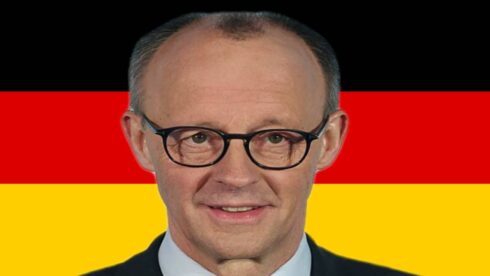Friedrich Merz, poised to become Germany’s next chancellor, has declared his intention to lead Europe toward “real independence” from the United States. This announcement follows his center-right Christian Democratic Union (CDU/CSU) alliance securing 28.5% of the vote in the recent federal elections, positioning them ahead of the far-right Alternative für Deutschland (AfD), which garnered 21%. Friedrich Merz emphasized the urgency of strengthening Europe’s autonomy, particularly in defense matters, in response to perceived indifference from the current U.S. administration under President Donald Trump.
A Shift in Transatlantic Relations
Friedrich Merz’s call for European independence signifies a pivotal shift in Germany’s foreign policy. Historically, Germany has maintained robust transatlantic ties, relying heavily on U.S. support within the NATO framework. However, recent unilateral actions by the Trump administration, including direct negotiations with Russia concerning the Ukraine conflict and threats to withdraw U.S. security guarantees from Europe, have prompted German leadership to reassess this dependency. Friedrich Merz articulated concerns over America’s commitment to European security, suggesting that Europe must expedite the development of its own defense capabilities to reduce reliance on the U.S.
Navigating Coalition Complexities
Forming a stable government remains a critical challenge for Friedrich Merz. Despite the CDU/CSU’s lead, they lack an outright majority, necessitating coalition partnerships. The most viable option appears to be a coalition with the Social Democratic Party (SPD), which suffered its worst electoral performance since World War II, securing just over 16% of the vote. This potential alliance, while providing a slim parliamentary majority, may face internal tensions due to differing policy priorities, particularly on issues such as migration and economic reform. Friedrich Merz has expressed a desire to establish a government promptly, acknowledging the pressing global challenges that demand immediate attention.
Addressing the Rise of the Far-Right
The AfD’s unprecedented electoral success, doubling its previous vote share to 21%, underscores a significant shift in Germany’s political landscape. Friedrich Merz has firmly ruled out any collaboration with the AfD, maintaining a “firewall” against far-right influence. This stance reflects a commitment to upholding democratic values and preventing the normalization of extremist politics. However, the AfD’s surge presents an ongoing challenge, as it indicates a growing faction of the electorate dissatisfied with traditional parties, potentially complicating future policy-making and social cohesion.
Economic Revitalization Amidst Stagnation
Germany’s economy has faced two years of stagnation, exacerbated by high energy costs and increased competition from China. Friedrich Merz has pledged to implement comprehensive economic reforms aimed at revitalizing growth. His proposed measures include reducing corporate tax rates, cutting bureaucratic red tape, and investing in infrastructure. These initiatives aim to enhance Germany’s competitiveness on the global stage and address domestic economic challenges. However, fiscal constraints, particularly the constitutional “debt brake,” may limit the government’s ability to finance these reforms without significant policy adjustments.
Reevaluating Defense and Security Policies
In light of shifting global alliances and uncertainties surrounding NATO’s future, Friedrich Merz has advocated for a reevaluation of Germany’s defense and security policies. He has suggested that Europe may need to develop independent defense capabilities more rapidly, potentially reducing reliance on NATO in its current form. This perspective aligns with broader European discussions about strategic autonomy and reflects concerns over the reliability of traditional alliances. Friedrich Merz’s approach indicates a proactive stance in redefining Germany’s role within both European and global security frameworks.
Implications for European Unity and Global Relations
Friedrich Merz’s leadership is poised to influence not only Germany’s domestic policies but also the broader trajectory of European unity and its position in global affairs. His emphasis on reducing dependence on the U.S. and fostering stronger intra-European cooperation could lead to significant shifts in international relations. This approach may encourage European nations to collaborate more closely on defense, economic, and foreign policies, potentially redefining the continent’s alliances and strategic priorities in the face of evolving global dynamics.














